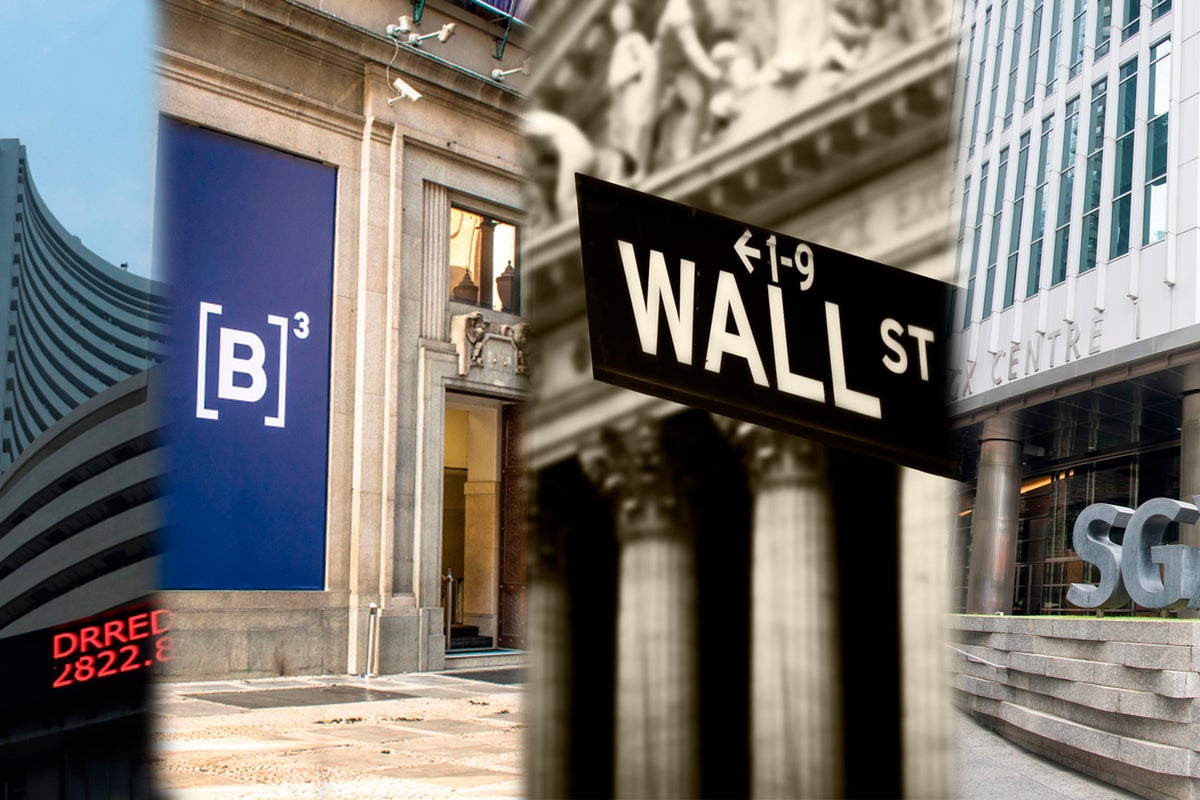An unprovoked war in eastern Europe that threatens an energy crisis, fresh COVID-19 waves in China and major global central banks going berserk with rate hikes to rein in galloping inflation were among the major themes of 2022.
What Happened: The year was hard on investors as financial assets sold off indiscriminately, with high-quality and safe haven assets not spared either. Equities by virtue of being risky bets were among the worst hit.
See Also: Best Bear Market Stocks
The U.S. market led from the front, chalking up massive losses and dragging the averages elsewhere lower.” After a year of macroeconomic and geopolitical shocks, investors responded by derating the S&P 500 price-to-earnings (P/E) ratio as much as seven times, while some speculative growth segments crashed 70-80% from highs,” JPMorgan said in a recent report.
It all started with fears of rate hikes and the likely impact on fragile economic growth. Inflation has begun to take a turn for the worse since late 2020 as the impact of monetary and fiscal policy stimuli implemented in the wake of the first COVID-19 wave began to reflect in prices.
Inflation in the U.S. accelerated to a fresh 40-year high of 9.1% in June and has cooled off slightly since then.
Source: U.S. Bureau of Labor Statistics
Inflation was not a U.S.-specific issue as the backdrop in most other global economies was similar and pricing pressure was rearing its ugly head across nations. Global central banks were left with no option but to raise rates in an accelerated manner, which portended a hard landing.
Following a cumulative 425 basis point hike, the fed fund rate is currently at 4.25%-4.50%. The Bank of Japan, which was the only central bank among developed nations, to stay pat, recently announced some maneuvering in the policy rate by making a tweak to bond yield control that would allow long-term rates to rise more.
The Russia-Ukraine War that began in late February sent most well-thought-out policy plans into disarray as supply chain bottlenecks sent input prices soaring. This fueled inflation further even as the central banks were beginning to be concerned about the trajectory of retail prices.
The last straw was the on-off COVID-19 recurrences in China.
The Worst And The Best: Russia’s stock market average and South Korea’s Kospi were the worst-performing indices among the G20 nations.
That Russia had a horrid year does not come as a surprise. The MOEX Russia Index has shed about 43% at the close of the year. The domestic stock market was shut for about a month after prices plunged in response to Russia’s invasion of Ukraine. Official data released from Russia in November showed that the economy plunged into a recession, dropping 4% year-over-year in the third quarter.
The Kopi dropped about 24.89% before closing the year at 2,236.40. This marked the index’s first annual loss in four years, Reuters reported. Liquidity tightening by global central banks was the major reason for the equity market weakness seen in 2022, Mirae Asset Securities analyst Kim Seok-hwan said, the report said.
Among the best performers is Brazil’s Ibovespa, which has gained 4.7% in local currency terms. Analysts are hopeful the index will continue its outperformance in the coming year. Brazilian equities should benefit from higher-for-longer commodity prices, very attractive valuations that don’t reflect macroeconomic conditions and relatively low vulnerability to tighter global liquidity, UBS’ chief investment officer for emerging markets Alejo Czerwonko said in a September note, Bloomberg reported.
Incidentally, Brazil edged out a handful of markets in Asia to take the crown. India’s 30-share Sensex closed the year with a 4.44% gain. Indonesia’s Jakarta Composite Index and the Singapore Straits Times Index were close behind with advances of 4.09% and 4.02%, respectively.
The South and Southeast Asian markets benefited from funds chasing stocks from the region, as the pandemic reopening and a revival in tourism buoyed corporate earnings, Bloomberg reported. The relatively benign inflation has helped to offset the impact of a stronger dollar, it added.
The U.K. market receives an honorary mention, as it is the only market among the major developed economies to close in the green. The performance came despite the political instability and the resultant economic turmoil.
Performance Of Major Global Averages:
North America:
- U.S. (S&P 500 Index): -19.44%
- Canada (S&P TSX Composite: -8.66%
Europe:
- France (CAC 40): -9.50%
- Germany (DAX): -12.35%
- UK (FTSE 100): +0.91%
Asia-Pacific:
- Japan (Nikkei 225): -9.37%
- Hong Kong (Hang Seng Index): -15.46%
- China (Shanghai Composite Index): -9.61%
- Indonesia (Jakarta Composite Index): +4.09%
- Taiwan (Taiwan Weighted Index): – 22.40%
- Singapore (Singapore Straits Times Index): 4.02%
- Malaysia (FTSE Bursa Malaysia KLCI index): -4.60%
- Thailand (Thailand Set Index): +0.67%
- India (Sensex): +4.44%
- New Zealand (NZX 50 Index): -11.92%
- Australia (All Ordinaries): -7.17%
South America:
Image and article originally from www.benzinga.com. Read the original article here.

